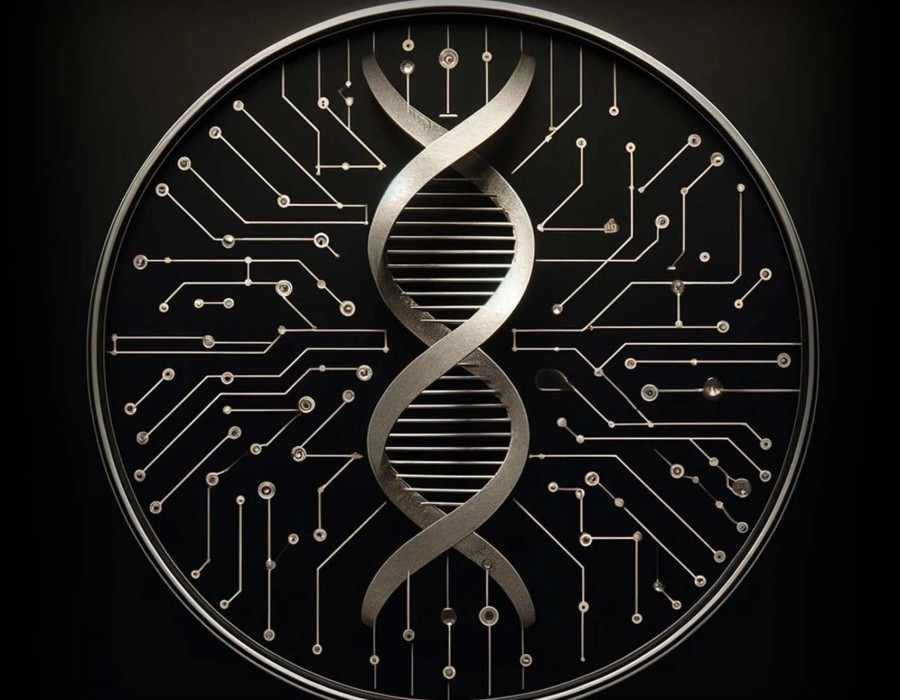The Intersection of AI and Biotechnology
AI has become a powerful tool in biotechnology because of its ability to process large-scale biological data. The life sciences generate vast quantities of data, particularly in genomics, proteomics, and drug discovery. Traditional methods of analyzing this data often fall short due to the complexity of biological systems. However, AI algorithms can handle such data with ease, providing researchers with valuable insights in a fraction of the time.
In biotechnology, AI is revolutionizing research by accelerating the discovery process, optimizing lab workflows, and predicting biological outcomes. Machine learning models are used to identify patterns within complex datasets, while deep learning techniques are applied to enhance the accuracy of predictions. AI’s predictive capabilities are especially useful in early-stage research, where it can help scientists identify promising drug candidates or genes of interest before they move into clinical trials.
Thus, the role of artificial intelligence in biotechnology is not only to enhance research efficiency but also to make the innovation process more precise and cost-effective.
AI in Drug Discovery and Development
Drug discovery has traditionally been a lengthy and expensive process. It can take years to identify viable drug candidates and bring them to market. AI has transformed this landscape by drastically reducing the time required for drug discovery. By analyzing biological data, AI algorithms can predict which molecules will be most effective against a particular disease. This allows pharmaceutical companies to test fewer compounds in the lab, accelerating the drug development pipeline.
AI also plays a critical role in analyzing clinical trial data. Traditionally, clinical trials involve significant manual labor, from recruiting patients to monitoring outcomes. AI systems can automate many of these processes, improving the speed and accuracy of trials. Additionally, AI algorithms can monitor patient responses in real-time, allowing researchers to adjust their trials based on data-driven insights. This ability to adapt during trials enhances the overall efficiency of drug development.
Incorporating the role of artificial intelligence in biotechnology in drug discovery has the potential to save billions of dollars in research and development costs while delivering life-saving drugs to patients faster.
Precision Medicine: A New Era of Healthcare
Artificial intelligence for precision medicine is one of the most promising developments in modern healthcare. Precision medicine focuses on tailoring medical treatment to individual patients based on their genetic makeup, lifestyle, and environmental factors. Traditional approaches to healthcare often adopt a one-size-fits-all approach, which may not be effective for everyone. Precision medicine, with the help of AI, aims to create personalized treatment plans that are more effective and efficient.
AI enables precision medicine by analyzing vast amounts of genomic data, clinical records, and lifestyle information. Machine learning algorithms identify patterns that help doctors understand how specific genetic variations affect a patient's response to treatment. This information allows healthcare providers to create personalized treatment plans that are more likely to succeed.
For example, AI can predict how a particular cancer patient will respond to chemotherapy based on their genetic profile. It can also recommend alternative treatments that may be more effective. AI’s ability to handle and process this kind of data has made artificial intelligence for precision medicine a critical tool in modern healthcare, as it enables the development of treatments tailored to the unique needs of each patient.
AI and Genomics: Unlocking the Secrets of DNA
Another area where AI is making a significant impact in biotechnology is genomics. Genomic data is incredibly complex and difficult to interpret without the help of advanced computational tools. AI algorithms are capable of identifying genetic mutations that are associated with specific diseases, allowing for more accurate diagnostics and therapeutic interventions.
In gene editing, AI is helping to refine tools like CRISPR, enabling more precise genetic modifications. AI can predict potential off-target effects of gene-editing techniques, making the process safer and more effective. Additionally, AI algorithms are being used to study how genes interact with each other, providing insights into the molecular mechanisms of diseases and helping researchers develop targeted therapies.
The integration of AI into genomics represents a crucial part of the role of artificial intelligence in biotechnology, as it allows scientists to unlock the full potential of genetic data and translate it into actionable insights for medical interventions.
Ethical Considerations in AI-driven Biotechnology
While AI offers tremendous potential in biotechnology, it also raises important ethical questions. The use of AI in areas like genetic engineering, drug development, and precision medicine requires careful consideration of privacy, security, and fairness. For instance, the collection of genetic data for precision medicine raises concerns about patient privacy and data security. As AI becomes more integrated into healthcare, ensuring that data is handled responsibly will be crucial.
There is also the question of bias in AI algorithms. If not properly managed, AI systems can perpetuate biases present in the data they are trained on. This could result in unequal access to precision medicine or skewed results in clinical trials. Ensuring that AI models are transparent and unbiased is essential for their ethical use in biotechnology.






Comments